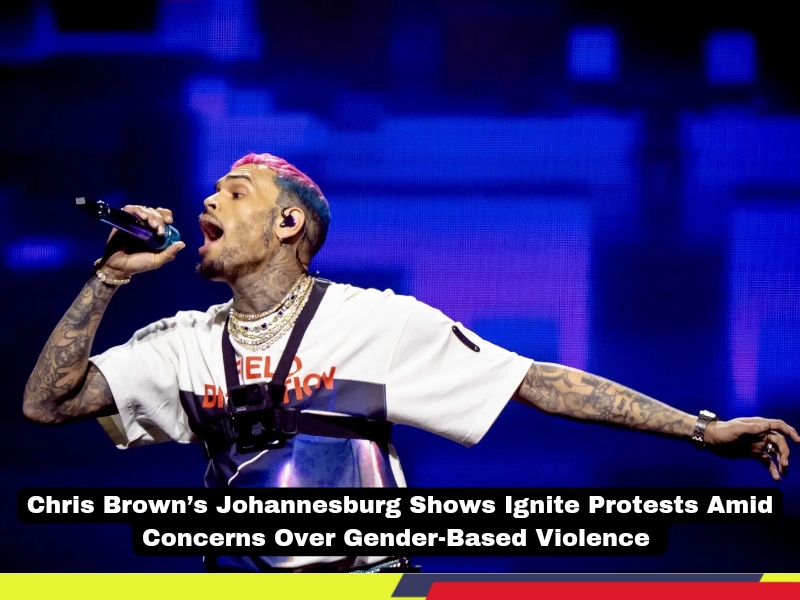Chris Brown’s upcoming performances in Johannesburg have sparked a wave of controversy, drawing attention to issues of gender-based violence in South Africa. The singer, whose history includes a 2009 guilty plea for assaulting Rihanna, has faced widespread criticism and protests from women’s rights groups in the country.
Protests Gain Momentum
The announcement of Brown’s two shows at Johannesburg’s 94,000-seat FNB Stadium, scheduled for December 14 and 15, initially drew excitement, with tickets selling out in under two hours. However, this excitement was quickly met with opposition. Women for Change, a South African nonprofit organization, launched a petition urging the government to deny Brown a visa.
With over 50,000 signatures, the petition was submitted to South Africa’s Departments of Home Affairs and of Sports, Arts, and Culture. The group’s founder, Sabrina Walter, stated:
“We aim to send a clear message that South Africa will not celebrate individuals with a history of violence against women.”
The protest holds particular significance in South Africa, a country grappling with an epidemic of gender-based violence. According to the South African Medical Research Council, women in the country are killed at a rate five times higher than the global average, with the majority of murders committed by intimate partners.
Chris Brown’s Response
Neither Brown nor his representatives have directly addressed the protest. However, in October, as Women for Change promoted the #MuteChrisBrown hashtag on social media, Brown appeared to mock the group by commenting, “Can’t wait to come,” under one of its Instagram posts. This triggered a wave of online harassment against Walter and her team, including death threats from Brown’s followers.
This is not the first time Brown has faced backlash for his conduct. He has previously used social media to attack critics and defend himself against allegations. In 2019, after being accused of aggravated rape in France (a case that was later dropped), Brown sold merchandise emblazoned with the words, “This Bitch Lyin’.”
A Broader Debate
The controversy surrounding Brown’s performances has reignited debates about holding public figures accountable for their past actions, particularly in regions facing severe societal challenges. For South Africa, where gender-based violence remains a critical issue, allowing Brown to perform sends conflicting messages about the country’s commitment to combating this epidemic.
As the debate unfolds, the shows remain scheduled, but the protests highlight the growing call for accountability and justice, especially for women impacted by violence. Whether Brown’s concerts proceed without further disruptions remains to be seen, but the spotlight on South Africa’s gender violence crisis has intensified.
The Bigger Picture
This incident serves as a reminder of the power and responsibility of public figures and the ongoing struggles to address gender-based violence worldwide. For South Africa, the question remains: should art and entertainment take precedence over societal values and the fight against systemic violence?




